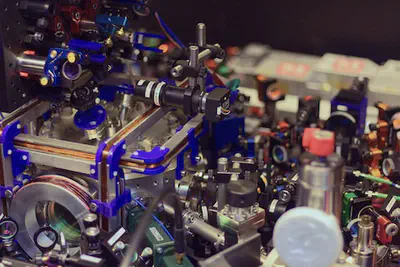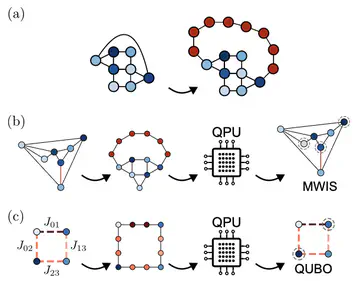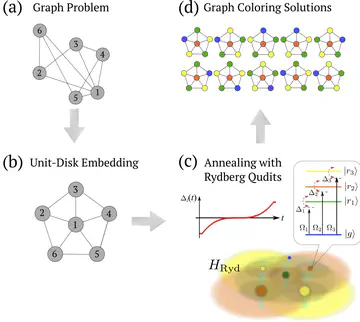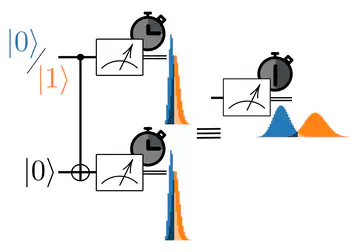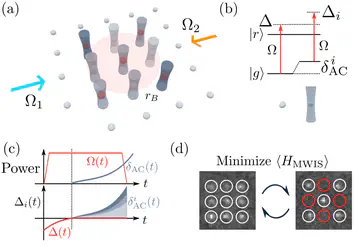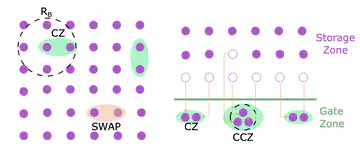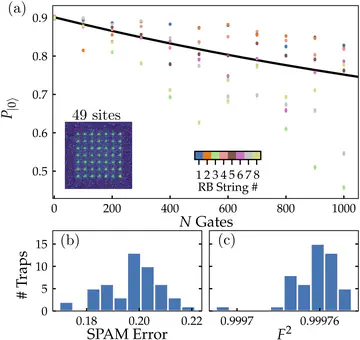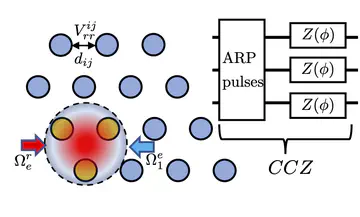Scalable Qubit Arrays for Quantum Computing and Optimisation (SQuAre)


Our hardware is based on holographic trapping of arrays of identical atomic qubits. Traps are initially loaded at random, after which they are sorted to generate deterministically loaded qubit arrays. To connect our qubits we take advantage of the strong long-range interactions between Rydberg atoms to couple each qubit to its surrounding neighbouring qubits to perform deterministic two and multi-qubit gate operations. Following implementation of the quantum algorithm, qubits are readout using state-selective fluorescence measurements.

A unique advantage of the neutral atom platform is that, unlike competing technologies, the fidelity of the Rydberg mediated gates doesn’t drop as the system size is increased providing an attractive route to scalable quantum computing.
This Prosperity Partnership enables us to work directly with M Squared Lasers, the global leaders in supplying commercial laser systems to quantum computing activities around the world, whose low noise, high power Equinox and SolsTiS laser systems provide the key enabling technology to achieving both scalability and high fidelity qubit operations for our neutral atom platform. Outputs from SQuAre team at Strathclyde have been exploited by M Squared to develop Maxwell, the UK’s first commercial neutral atom computing platform which was officially launched at the 2022 UK Quantum Technology Showcase – for more details see here.
Highlights
Publications
Funding




